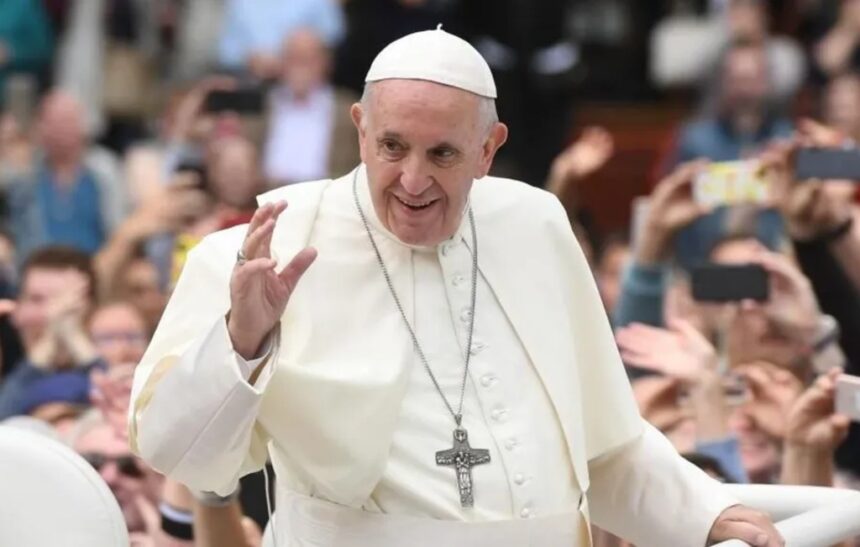Pope Francis, born Jorge Mario Bergoglio in Buenos Aires, Argentina, died on Easter Monday, April 21, 2025. He was 88. Cardinal Kevin Farrell confirmed his passing at the Vatican’s Casa Santa Marta following complications from double pneumonia.
The end of his 12-year papacy brought widespread mourning and triggered preparations for a new papal conclave.
Francis was the first Jesuit and the first non-European pontiff in more than 1,200 years. Elected pope in 2013 after Pope Benedict XVI’s resignation, he set a new tone for the Catholic Church. He chose to live in the Domus Sanctae Marthae guesthouse rather than the Apostolic Palace, reflecting his preference for a simple lifestyle.
Focus on Reform and Social Justice
From the start, Francis pushed for church reforms and focused on the needs of the poor and marginalized. He addressed global issues such as migration and climate change. During his first trip as pope to Lampedusa in 2013, he criticized indifference toward migrants, signaling a clear message of inclusion and care for the vulnerable.
Pope Francis faced health problems throughout his life, including a lung infection as a young man and chronic respiratory issues later on. In early 2025, he spent five weeks in the hospital with pneumonia and survived two near-fatal incidents. Dr. Sergio Alfieri, his main doctor, called his recovery remarkable but advised him to avoid physical strain. Despite his frailty, Francis appeared in St. Peter’s Square on Easter Sunday, blessing crowds from a wheelchair.
Controversy and Progressive Views
Pope Francis often drew criticism and praise for his views. He supported stronger ties with other faiths and voiced concern for the environment, earning international recognition. His 2013 comment, “Who am I to judge?” about gay Catholics, reflected his open approach, though he stopped short of major changes to church policy on LGBTQ+ issues. Conservative Catholics said he weakened tradition, while others called for even greater reforms, including roles for women.
Leaders from around the world expressed condolences. Israel’s President Isaac Herzog praised his efforts to connect with the Jewish community. Dutch Prime Minister Dick Schoof described him as a “man of the people.” US Vice President JD Vance, who visited Francis on Easter Sunday, mentioned the pope’s poor health but recalled his moving speeches during the COVID-19 pandemic. French President Emmanuel Macron voiced support for Catholics worldwide.
Vatican Protocol and Funeral Arrangements
After verifying the pope’s death by repeating his baptismal name three times, Cardinal Farrell, as camerlengo, declared, “At 7:35 this morning, the Bishop of Rome, Francis, returned to the Father’s house.” The Vatican began its traditional nine-day period of mourning. Francis asked for a simple funeral and will be buried at Rome’s Basilica of Santa Maria.
A conclave will meet within the next two to three weeks to choose the next pope. Over 140 cardinals will take part. Francis’ death highlights ongoing debates between conservative and reform-minded groups within the church. His push for inclusion and social justice stands in contrast to those who prioritize tradition, shaping the discussion ahead of the conclave.
The Impact of Pope Francis
Pope Francis leaves behind a legacy centered on humility and compassion. He encouraged Catholics to practice faith with courage and care for others, as noted by Cardinal Farrell. His focus on helping the poor and refugees reached beyond the church’s 1.3 billion members. Messages on social media, including on X, showed the global sorrow and respect for his leadership.
Despite his illness, Francis continued his public ministry, blessing crowds and speaking out against greed and nationalism. His final act in St. Peter’s Square reflected a life of service. As the Catholic Church prepares for the future, his influence will remain strong for years to come.
Sources: The Guardian, The New York Times, The Independent, Vatican News, Yahoo News, AP News, X posts.
Related News:
Japanese Court Orders Controversial Moonies Church Disbanded

Geoff Thomas is an award winning journalist known for his sharp insights and no-nonsense reporting style. Over the years he has worked for Reuters and the Canadian Press covering everything from political scandals to human interest stories. He brings a clear and direct approach to his work.












